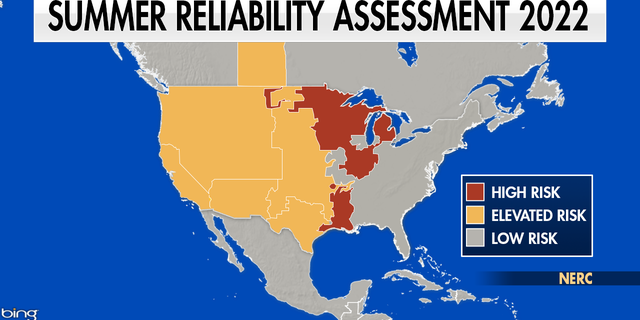NEWYou can now listen to Fox News articles!
Extreme temperatures are expected to bake much of the U.S. this week as potential record-breaking temperatures were forecast to linger until next weekend.
More than 85 million Americans, from the Pacific Northwest to the southern Great Plains to the East Coast’s heavily populated Interstate 95 corridor, were under excessive heat warnings or heat advisories issued by the National Weather Service.
The agency warned of “extremely oppressive” conditions from Washington to Boston, with numerous record highs expected to be tied or broken in the Northeast.
Philadelphia, where city officials opened cooling centers, hit 99 degrees Sunday without factoring in the humidity. Newark, New Jersey, saw its fifth consecutive day of 100 degrees or higher, the longest such streak since records began in 1931. Boston also hit 100 degrees, surpassing the previous daily record high of 98 degrees set in 1933.
HEATWAVE RESPONSIBLE FOR MULTIPLE DEATHS ACROSS US
Nicole Brown wipes sweat from her face while setting up her beverage stand near the National Mall on Friday, July 22, 2022, in Washington.
(AP Photo/Nathan Howard)
On the West Coast, temperatures could break daily records in Seattle, Portland and Northern California by Tuesday and climb to the highest level since a heat wave last year that killed hundreds of people across the Pacific Northwest.
Highs ranging from 95 degrees to 110 degrees were forecast for inland areas. An excessive heat watch was issued for central and eastern Washington state and the central Idaho Panhandle from Tuesday morning through Friday evening.
Sweltering temperatures and low humidity in California have resulted in tough conditions for some 2,000 firefighters battling the Oak Fire near Yosemite National Park. The destructive and out-of-control wildfire has forced thousands of residents to flee remote mountain communities.

Jennifer Pagan, center, reacts as she sits in front of an open fire hydrant in The Bronx section of New York, Friday, July 22, 2022.
(AP Photo/Seth Wenig)
Extreme heat and rising fuel costs have left over half the U.S. at risk for large-scale and recurring blackouts during the summer months, according to the North American Energy Reliability Corporation’s (NERC) 2022 Summer Reliability Assessment released in May.

North American Energy Reliability Corporation highlighted the risk of blackouts across the western U.S. during summer.
CLICK HERE TO GET THE FOX NEWS APP
The report highlights that much of the western half of the country is at risk for widespread blackouts and capacity shortfalls during peak usage hours.
The report cites myriad issues contributing to the risk including decreased hydroelectric generation from widespread drought conditions, damaged transmission lines due to extreme weather events, premature closure of coal and other fossil fuel plants and supply chain issues that continue to disrupt key American industries.
Fox News’ Andrew Keiper and The Associated Press contributed to this report.